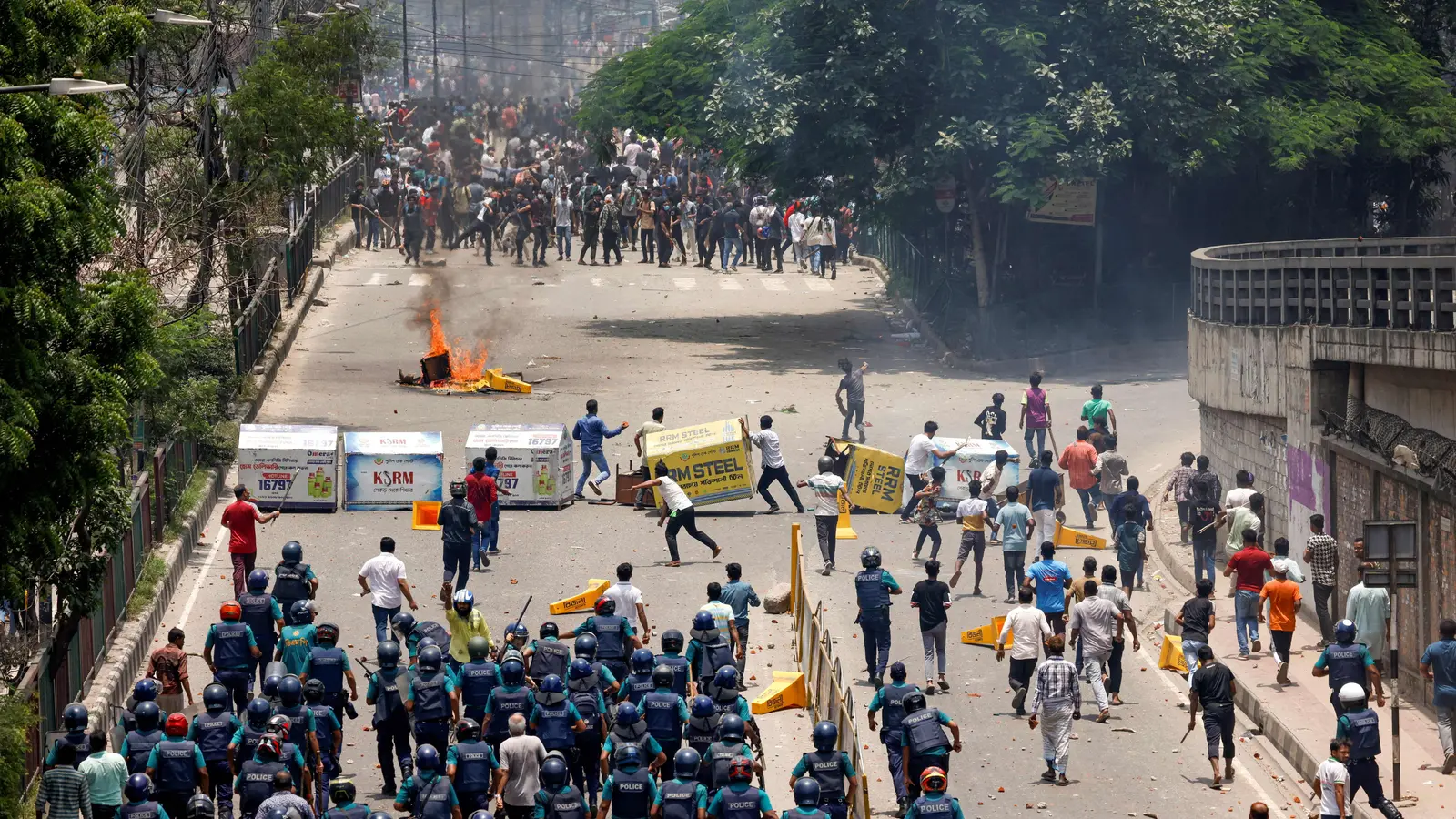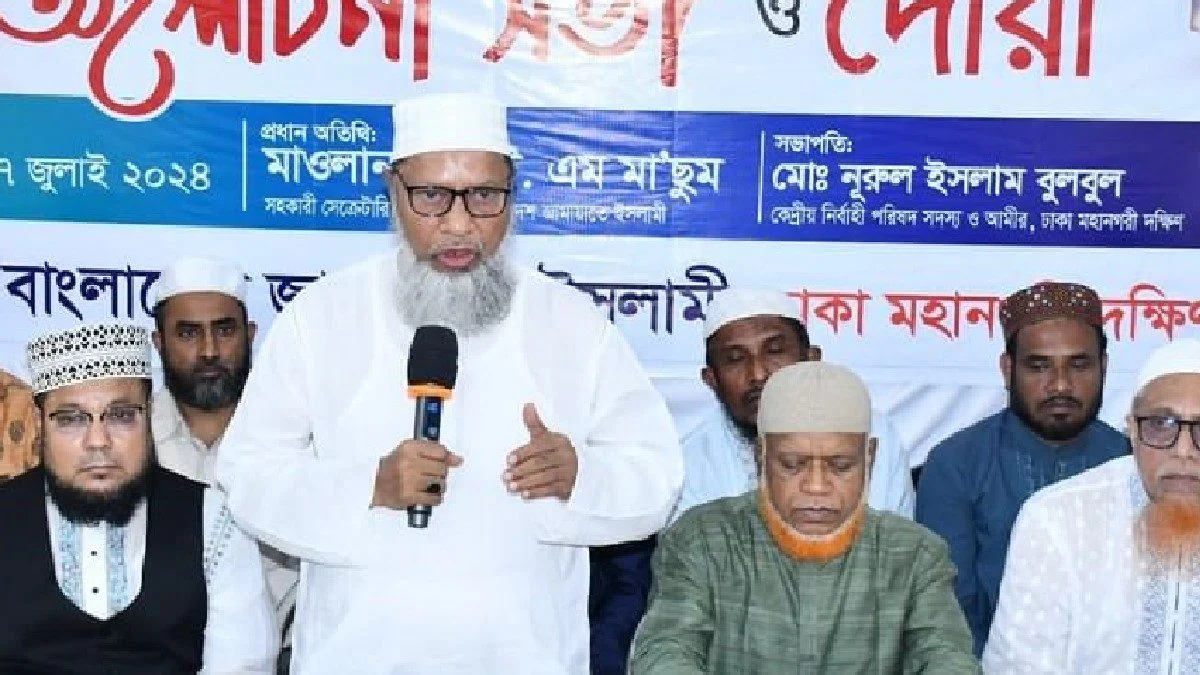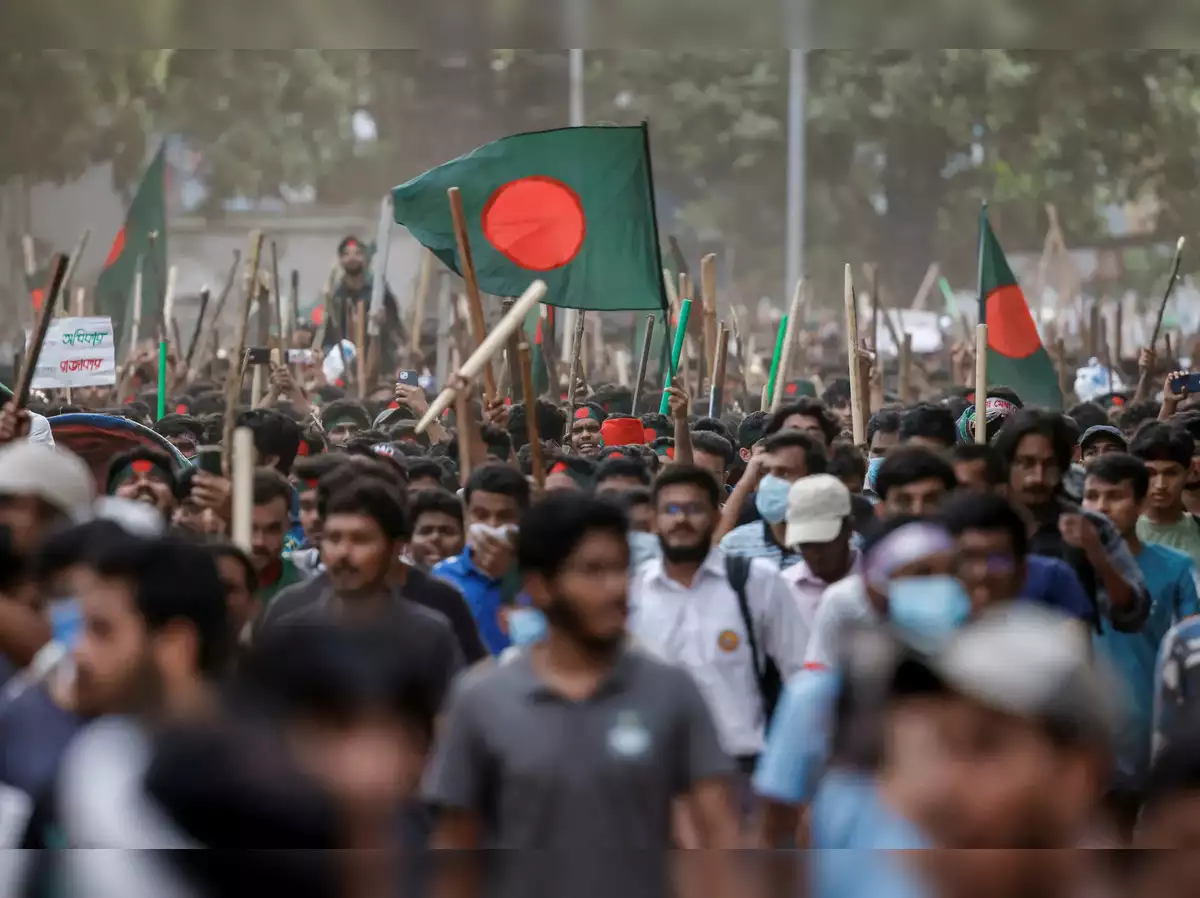Sheikh Hasina Bans Jamaat-e-Islami and Its Student Wing: What’s Next for Bangladesh?

Jamaat-e-Islami has over 30 million official members.
Angry protests in Bangladesh have prompted Prime Minister Sheikh Hasina Wazed to ban Jamaat-e-Islami and its student wing, Shibir.
Opposition students in Bangladesh have been leading protests since July 1, 2024, starting at the prestigious University of Dhaka and spreading to other universities.
The protests have expanded to other cities nationwide, involving daily gatherings that included road, transportation, and railway blockades.
The demonstrations began in response to more than half of government jobs being allocated to specific categories and certain families.
Amid this turmoil, Wazed's government decided on July 30 to ban Jamaat-e-Islami and its student wing, Shibir.
The latter has over 30 million official members and enjoys around 25% of the vote.
It is the third-largest political party in the country and one of the oldest political entities in the Indian subcontinent.
Similarly, Shibir, a prominent organization representing the most active and intelligent students, plays a significant and powerful role in leading the student movement against Wazed's dictatorial regime.
The unrest pushed the PM to step down and leave the country on Monday following these protests that had turned violent and evolved into a wider opposition against her 15-year tenure. Thousands of demonstrators stormed her official residence and other properties linked to her party and family.

Crackdown and Ban
The banning of Jamaat-e-Islami came in the wake of violent protests that left over 150 dead, including children aged 6 to 14, and thousands injured after security forces, border guards, and the army opened fire on demonstrators.
Students blamed Prime Minister Sheikh Hasina Wazed and her party for the massacres that befell their peers, demanding her resignation and the overthrow of the regime.
In response, Hasina Wazed chose to target Jamaat-e-Islami as a "scapegoat" by banning it.
The immediate implementation of the ban involves a notification in the official gazette by the Bangladeshi Ministry of Home Affairs, listing Jamaat-e-Islami as a "terrorist organization."
The ministry, which killed many protesters during the unrest, declared the ban under the Anti-Terrorism Act.
Details of the ban included Hasina Wazed gathering her political allies and directly blaming Jamaat-e-Islami, its student wing, and affiliated bodies for inciting violence during the student protests against the job quota system.
As a result, 14 parties led by the Awami League (the ruling party) decided to ban Jamaat-e-Islami, accusing it of "destabilizing the country with sabotage and chaos" during the protests.
The official Bangladeshi newspaper, Dhaka Tribune, reported that the Prime Minister instructed the Ministers of Justice and Home Affairs to take action on the ban.
There is no doubt that Jamaat-e-Islami, the largest and most influential political and social organization in the country, was at the forefront of opposing the quota system.
This employment system, established by the ruling regime and the military in 1992, allocates a significant portion of public sector jobs to relatives of "war heroes," such as the children of officers and favored members of the ruling party.
Under this system, thousands of unqualified and failing individuals were appointed, sidelining the competent graduates of prestigious universities.
Protesters demanded job appointments based on merit and qualifications, not the quota system, which students viewed as biased towards Hasina Wazed's supporters and allies.
Following the protests, Wazed's government deployed the Rapid Action Battalion, a paramilitary force, to kill students.
In 2021, the United States imposed sanctions on this battalion for “serious human rights violations.”

A Contentious History
Sheikh Hasina, who ruled Bangladesh with an iron fist, had a harsh confrontational history with Jamaat-e-Islami, both ideologically and on the ground.
She allied with Hindu extremists against Muslim interests, enforced secularism, and coldly executed Jamaat leaders and scholars.
Jamaat-e-Islami has participated in various parliamentary elections in Bangladesh since the country's separation from Pakistan.
Their most significant participation came in 2001, when they entered as a partner in the opposition alliance, securing 17 out of 300 seats and obtaining two ministerial positions in the government.
At that time, Jamaat-e-Islami took progressive steps by aligning with four parties to govern the country for five years, participating in the government through the Ministries of Industries and Social Welfare.
In 2010, the Bangladeshi government, led by Hasina Wazed, perceived Jamaat's growth and popularity as a serious threat.
She resorted to a drastic measure, accusing prominent Jamaat leaders of committing war crimes in 1971.
A special tribunal was set up for this purpose, with carefully selected judges to deliver government-dictated verdicts, resulting in the hanging of these leaders.
Among those prosecuted and sentenced were ameer of Jamaat-e-Islami Ghulam Azam, and former Minister of Agriculture Sheikh Motiur Rahman Nizami, in addition to Secretary-General Ali Ahsan Mohammad Mojaheed.
Others included Muhammad Kamaruzzaman, the first assistant secretary-general and editor of Sonar Bangla magazine, the second assistant secretary-general Abdul Quader Mollah, and the third assistant secretary-general Azharul Islam.
Also implicated was Mir Quasem Ali, a member of Jamaat's executive council and former director of the Muslim World League's office in Bangladesh.
On May 10, 2016, Hasina Wazed's authorities executed Sheikh Nizami in a Dhaka prison, causing a profound shock to Jamaat-e-Islami in Bangladesh and the broader Islamic world.

Jamaat-e-Islami
Jamaat-e-Islami has played a crucial role in the history of the Indian subcontinent, working towards the unification of East and West Pakistan.
However, East Pakistan (now Bangladesh) was geographically separated from the West (Pakistan) and had a large Bengali population with a distinct language, culture, and history.
The founding of Jamaat-e-Islami in Bangladesh is closely tied to its foundation in Pakistan, as both were originally a single entity.
The organization was established on August 26, 1941, when 75 men from across the Indian subcontinent, led by Abul A'la Maududi, gathered in Lahore, the capital of Punjab in Pakistan, and formed Jamaat-e-Islami, electing Maududi as its leader.
Jamaat-e-Islami began to diverge during the split between East and West Pakistan.
The political and economic dominance of West Pakistan led to a sense of neglect among the East Pakistanis, sparking calls for Bangladesh's independence.
Mujib Rahman, Sheikh Hasina's father, was a prominent leader of this independence movement, holding animosity towards Jamaat for not supporting the secession.
During the Bangladesh Liberation War of 1971, Jamaat-e-Islami in East Pakistan (now Bangladesh) opposed independence, advocating for Islamic unity and warning against the violent conflict, highlighting India's support for the separation.
Despite its role in supporting Bangladesh's development, Jamaat-e-Islami has faced relentless political repression, fueled by unfounded accusations from proponents of the Hindutva ideology of committing war crimes during the Liberation War.
Following Bangladesh's independence in 1971, the government targeted Jamaat-e-Islami as a political adversary.
The authorities arrested its leaders and banned the party, with ongoing trials under the pretext of war crimes committed during the 1971 independence war, leading to executions.
The government accused Jamaat leaders of heading the al-Badr brigade, a militia that assisted the Pakistani army against the rebels (who led Bangladesh's independence) during the India-Pakistan war of 1971.
This war lasted six months and resulted in East Pakistan's secession and the establishment of Bangladesh as an independent state.
Despite these allegations, Jamaat-e-Islami's doctrines and political principles reject violence, asserting that "state-building and social change cannot be achieved through violence, terrorism, or chaos."
The party emphasizes the importance of democratic governance and the peaceful transfer of power, affirming that "Islamic beliefs should not be imposed on the populace by force."









